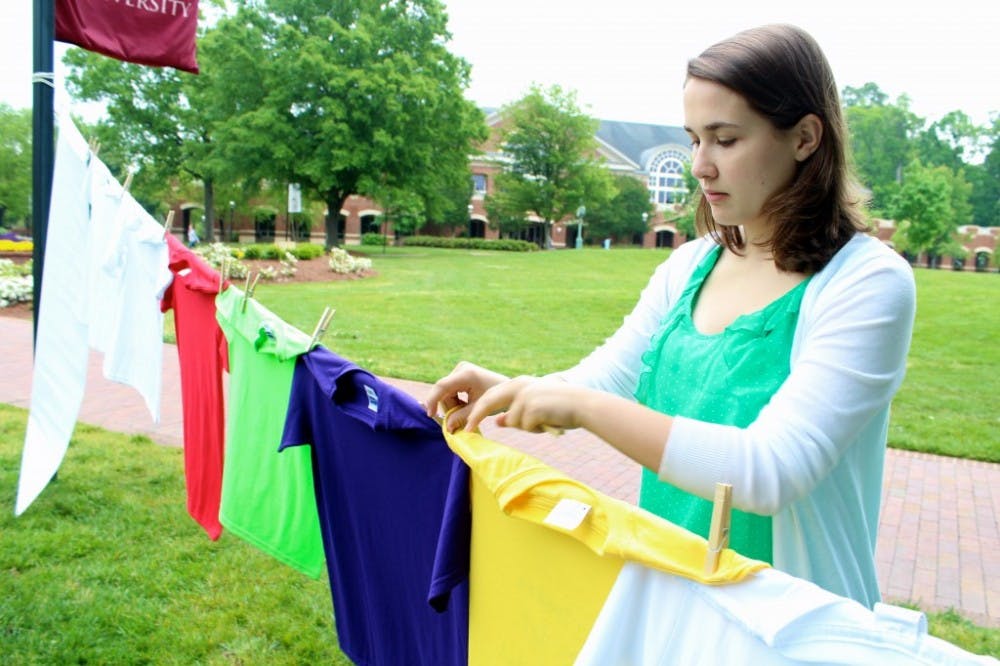In recognition of Sexual Assault Awareness Month, SPARKS took part in The Clothesline Project, a national program that allows women who have been personally affected by violence to express their emotions by decorating a T-shirt.
From April 23-27, students could pick up supplies to make the shirts from a box in Harden and then drop them off anonymously.
In addition to encouraging students outside of SPARKS to participate, SPARKS also encouraged participation in from other associated organizations, said Kyle Whitaker, a sophomore in SPARKS.
“We reached out to local organizations like the Women’s Resource Center in Alamance County,” he said. “They provide services to women who are going through abuse.”
Kate Jablonski, a freshman in SPARKS, coordinated this year's event.
She said she really wanted to jump right in and get involved with SPARKS, and this was an event that she could personally relate to.
“It’s meaningful to me because I was in a relationship once that was an abusive relationship in many different ways, but I was able to get out and speak to others about my experience and get to help out other survivors,” Jablonski said. “I’m happy that SPARKS has given me a way to help out.”
The problem that both Jablonski and Whitaker said they have found especially at Elon is that people are not sure how to categorize sexual assault, and the introduction of alcohol makes the situation more complicated.
“It’s interesting because a lot of girls here have a mentality that it happens, so it's not a big deal, but it can be defined as sexual assault and they can report it — they just choose not to,” Whitaker said.
Defining sexual assault is part of Sexual Awareness month, according to Jablonski. Along with The Clothesline Project, SPARKS put on Take Back the Night, an event at which victims could talk about their experiences, and Couple’s Chemistry, where couples answered questions about their relationships and problems they have gone through.
But the main part of the week and the month is awareness.
“It’s not to scare people, but it happens and students are affected by it and I think the more that people recognize that things need to change on campus, the quicker they will change,” Whitaker said. “If we continue to think that it doesn’t happen, then nothing will change.”


